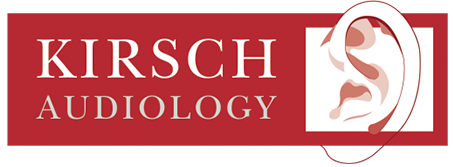Audiological Evaluation
Visiting Dr. Kirsch may not be the first step you’re taking in your journey to better hearing, but it’s probably the most important. You’ve probably already spent some time on the internet and talked to friends and family about whether you need help with your hearing. But now, you have made a decision to do something about it. Your visit will be easy, informative, and will give you more insight into your own needs. It is reassuring to learn the facts and meet the experts that can help. By the end of the visit you may ask yourself why you waited so long. Still, you may be wondering what’s involved in your first appointment at a hearing center, who you’ll be meeting with, and what’s involved if a hearing solution is recommended. Here are some highlights of what to expect.
Expect to spend some time just talking to allow Dr. Kirsch to get to know you. It is important that you talk about what you have been experiencing and explore together how hearing issues may be affecting you and your family.
Bring Someone with You
You will find it helpful to bring a spouse, family member or friend to your visit. You will typically get the most out of it if someone close to you can share in the experience.
Measuring your Hearing
During this appointment, Dr. Kirsch perform a hearing evaluation by giving you a few hearing tests measuring your hearing ability, interpret the results and offer suggestions and recommendations. Evaluating your hearing abilities starts with precise measurements of how well you hear sounds and speech. He needs this information to understand your needs and give you the right advice. Fortunately, these measurements are quick and easy. For best accuracy, the tests are conducted in a sound controlled setting, usually a sound booth or a quiet room. All you have to do is listen and respond.
Types of Evaluations
Pure Tone Testing
Reveals how well you hear tones of different pitches or frequencies. You simply listen through earphones to pure tones across the range of sounds that is most important for speech and environmental listening in everyday life. You will confirm that you have heard each sound either by raising your hand or pressing a response button. The volume of each sound is then adjusted until the “threshold”– the softest level you can hear– is reached. You may also be asked to listen to these same sounds through a small device placed behind your ear. This test can help determine whether sounds are being conducted properly to the inner ear, and helps uncover possible causes of hearing loss.
Speech Testing
You may also be asked to repeat familiar words and phrases which become softer and softer until you can no longer hear and understand them. You will also be asked to repeat words spoken at a comfortable loudness level to measure how well you understand speech if the volume is correct for your needs.
Putting it All Together
The overall results of your consultation will reveal many things: whether you have hearing loss, which ear hears better and how well you hear low and high pitched sounds. The word tests help provide additional information on your ability to clearly understand speech if the volume is sufficient and comfortable. Dr. Kirsch may perform additional tests to evaluate other aspects of your hearing function in order to obtain the most complete hearing profile for you. These results are important in diagnosing the causes of your hearing loss and best course of action. He will explain your test results to you and recommend what can be done.
Hearing Services – Next Steps
In some cases, a consultation with a medical doctor may be recommended. If hearing devices are indicated, you will learn about which solutions would be best for you, considering your hearing needs, your lifestyle and your budget. Fortunately, there is a wide range of choices and most people can be helped. Learn for yourself! You will be pleasantly surprised to see how today’s choices are extremely discreet, and even invisible. And they are easy to try, often right in the office, or in your own home.
Today, more people are wearing hearing devices and enjoying the benefits of better hearing at a younger age. As other hearing device wearers have reported, you are likely to experience an improved quality of life because you will be able to participate more actively in communication with others.
